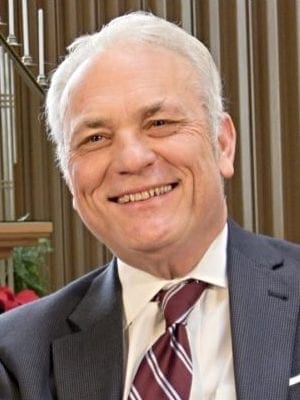North American Baptists will soon have one of the best opportunities in our history to address the racial divisions that have too long defined us.
On Jan. 30, thousands of Baptists from across racial, denominational, theological and geographical lines will gather in Atlanta for a New Baptist Covenant Celebration.
But this reconciliation will not happen if white Baptists don’t show up.
Racism is America’s original sin. The bitter legacy of slavery, segregation and separation is a moral blight on this nation. Baptist churches and institutions bear a heavy burden of complicity in this national evil.
The painful but unavoidable truth is that our Baptist mothers and fathers in the South designed, implemented, sustained and defended an institutional racism that systematically disenfranchised our African-American brothers and sisters for generations.
Blessedly, we have begun in recent decades a long penance for this national and denominational sin.
But we have a long, long way to go.
We must confess that, while the active restoration of civil rights is taking root in our national life, the passive social separation persists.
What Dr. Martin Luther King Jr. said in the 1960s about our churches still holds sadly true today: Sunday morning at 11:00 remains the most racially segregated hour of the week.
Racial dynamics continue to control our patterns of societal interaction. Far too few of us enjoy collegial relationships and close friendships with persons of a different skin color. Far too few of us go the extra mile in connecting with individuals of a different ethnic heritage. Far too few of us build bridges of understanding and collaboration with congregations whose racial makeup is different than our own.
The New Baptist Covenant gives us an historic chance to move forward in our repentance of this grave sin of omission.
Moderate Baptists, most of whom are Euro-Americans, have been searching for two decades for a mission that will stir us to a new movement of God’s Spirit among us. Many of our churches are in lethargy and decline. Many of our pastors are dispirited. Many of our laypersons are longing for a “certain trumpet” to rally us.
Could the Gospel call to racial reconciliation be that path to renewal? Could this witness to love be just the message that will mobilize our Baptist constituency and evangelize our lost and alienated neighbors?
Let me speak openly what is being whispered secretly during these days leading up to the New Baptist Covenant: African-Americans will vastly outnumber Euro-Americans. If this happens, we will not only miss a God-given opportunity to build a new community in Jesus Christ, but we will also likely impede the progress we have seen in race relations among Baptists in recent years.
Much is at stake at this gathering. Never before has such a constellation of Baptist bodies from across our spectrum of diversity come together at the same time in the same place to prayerfully deliberate our common future and mission. Only an individual with the moral stature of former President Jimmy Carter could convene such a diverse group.
If Euro-American Baptist pastors of the South are fearful of being accused of political partisanship because Jimmy Carter, Bill Clinton and Al Gore, all Baptist Democrats, are on the program, then we need to hear again that God has not given us a spirit of fear but of love.
At the beginning of John’s Gospel, we have the account of Philip extending the invitation to Nathanael to check out this new rabbi named Jesus. The response he got was less than enthusiastic. “Can anything good come out of Nazareth?” Nathanael cynically wondered. Philip simply countered, “Come and see.”
Like Nathanael of old, many in our midst these days are distrustful, wondering if anything good can come out of our collective Baptist life in these days of denomination breakdown and dissolution.
We have an opportunity. Let not the critics, nay-sayers and nail-biters keep us from doing the difficult work of racial reconciliation and justice. Let’s all accept the invitation to “come and see” what God is up to in the New Baptist Covenant.
We too might just discover, like that early disciple, a new Presence of Christ in which there is no guile.
Charles Foster Johnson is visiting instructor of preaching at McAfee School of Theology.
Charles Foster Johnson is pastor of Bread in Fort Worth, Texas, and founder and executive director of Pastors for Children, a nationwide network of faith leaders mobilized for public education ministry and advocacy.

